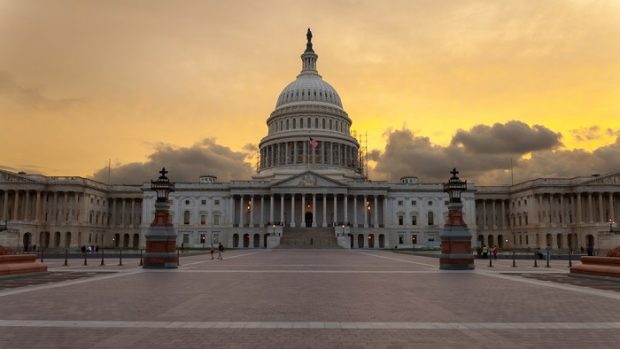 Here's what might happen to legislation such as the Retirement Enhancement Security Act and the Automatic Retirement Plan Act. (Photo: Shutterstock)
Here's what might happen to legislation such as the Retirement Enhancement Security Act and the Automatic Retirement Plan Act. (Photo: Shutterstock)
The political stasis expected if Democrats flip control of the U.S. House of Representatives, and Republicans retain control in the Senate, may not apply to key pieces of retirement legislation currently queued up in both chambers.
“The initial reaction is that a split in the House and Senate would lead to gridlock, but this time may be different for retirement policy,” said Ed Murphy, president of Empower Retirement, which administers $570 billion in retirement plan assets for more than 8.7 million participants.
“I still think 2019 could be the year we see some significant retirement legislation passed,” added Murphy, whose perspective is based on conversations with lawmakers and their staff.
Fivethirtyeight.com's latest projection gives the Democrats an 87.5 chance of gaining a majority in the House, which will require flipping at least 23 three seats currently held by Republicans. The Cook Political Report estimates there are 73 highly competitive seats that are considered a toss-up.
Retirement Enhancement Security Act
Moreover, the most comprehensive piece of retirement legislation — the Retirement Enhancement Security Act—could be moved out of Congress during the lame duck session. Murphy gives that prospect a “60-40” chance.
Introduced by Sen. Orrin Hatch, R-UT, who will retire at the end of the current Congressional session, RESA passed out of the Senate Finance Committee in the previous Congress by a unanimous vote. Reintroduced this year by Hatch, it is co-sponsored by Sen. Ron Wyden, D-OR, the ranking member of the Finance Committee.
Companion legislation was introduced in the House, where 34 Democrats are among the bill's 87 co-sponsors.
RESA and several other pieces of proposed retirement legislation account for one of the few areas of policy that have bipartisan support, noted Murphy.
If Democrats do flip the House, Rep. Richard Neal, D-MA, the ranking member of the House Ways and Means Committee, is expected to take control of the powerful tax writing committee, where RESA would be marked up.
That bodes well for RESA's champions, says Murphy.
“He's on record saying retirement legislation will be a number one priority,” said Murphy. Rep. Neal is not yet a signatory to RESA in the House, but has been a key lawmaker on retirement policy throughout his nearly 30 years in Congress.
“He's a well-respected and astute legislator. His ability to get something done is real,” added Murphy.
But outside of retirement policy, the prospect of a divided Congress is expected to come with considerable political upheaval, as key Democrats in the House have sent unambiguous signals of their intention to impeach President Trump, and open new investigations into the 2016 Presidential election and President Trump's tax returns from his time as a real estate developer in the private sector.
That is bound to exacerbate an already toxic political climate on Capitol Hill. But Murphy thinks retirement policy could survive.
“The threat of impeachment certainly doesn't help, and all of the rancor is a liability. But retirement policy touches 100 million Americans. Democrats have every incentive to move retirement legislation forward. They have to stand for something,” said Murphy.
Automatic Retirement Plan Act
Last year, Rep. Neal introduced the Automatic Retirement Plan Act of 2017, which requires all private sector employers with more than 10 employees to sponsor a defined contribution retirement plan.
A 401(k) mandate would be perhaps the most aggressive approach to reforming the country's private sector retirement system to date. The legislation has strong support from State Street Global Advisers.
While Republican proposals have stopped short of mandating plan sponsorship, nascent efforts at the state level have implemented automatic IRA plans for workers without access to workplace plans.
That has the potential to invigorate solutions—perhaps even mandates—at the federal level.
Murphy thinks Neal's mandate proposal could surface. “There's a way to come together and compromise on that bill as well,” said Murphy.
Social Security
One potential area of compromise could incorporate reforms to Social Security. Republican proposals have included raising the claiming age to shore up the program's solvency. Democrats often push back on that idea.
“All of the retirement proposals on the table aim to address the fact that the responsibility for retirement is falling on the individual,” said Murphy.
“Reforming Social Security presents significant challenges. To date, all we have been doing is kicking the can down the road. And that's just put more pressure on the individual,” said Murphy.
READ MORE:
4 retirement reform proposals you need to know about
© 2025 ALM Global, LLC, All Rights Reserved. Request academic re-use from www.copyright.com. All other uses, submit a request to [email protected]. For more information visit Asset & Logo Licensing.








